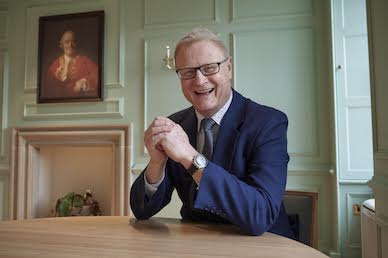Scotland’s development bank, The Scottish National Investment Bank (SNIB), announced that it committed £224.6 million in capital to 20 companies over the 2023-24 financial year.
The latest increase in committed investments brought the total amount of capital the bank has deployed since inception in November 2020 to around £640 million. The bank now has 35 companies in its growing portfolio.
In the 2023-24 financial year, £129 million was committed to eight new investments, plus £96 million growth capital in 12 follow-on investments.
SNIB chair Willie Watt said the bank made “clear and demonstrable achievement and progress” in its third full financial year. He said the bank was established to be a social “impact” investor, to drive growth in the Scottish economy and to provide financial returns on public capital.
The bank said loss before tax in the 2023-24 financial year was £14.6 million, an improvement from £20.2 million in the prior year, “predominantly due to realised and unrealised losses on investments.”
The SNIB said: “Unrealised losses for the year equates to c2% of y/e portfolio value.”
The SNIB was founded with a commitment from Scottish Government ministers to capitalise the bank with £2 billion over 10 years.
The total amount of investment “crowded-in” alongside the SNIB since 2020 exceeded £1 billion at March 31, 2024.
The bank said it was established to drive growth in the Scottish economy by addressing three “grand challenges” facing society: the climate emergency; community inequalities; and the requirement to enhance productivity through greater commercial innovation.
It said all the investments it makes must deliver against these three missions.
The bank’s latest annual report, covering the period April 1, 2023, to March 31, 2024, revealed that its income of £19.3 million was up more than 80% on the previous year at £10.7 million, and that it exceeded its operating costs of £16.1 million for the first time.
Watt said: “The bank was established to be an impact investor, to drive growth in our economy, provide financial returns on public capital and deliver social impact.
“These are long-term goals and we are operating in a challenging macroeconomic environment, which makes our progress all the more significant.
“The bank’s income exceeded operational expenses for the first time. This is significant but we are conscious that in our early years this remains sensitive to the mix of investments, continued deployment, and availability of capital to invest.
“This acceleration towards profitability has been progressive, with our income growing significantly year-on-year.
“A key factor in this was the clarity provided by Scottish ministers at the time of our founding, with a bold commitment to capitalise the bank with £2 billion over 10 years.
“The bank was conceived as a perpetual institution that would redeploy investment returns for the people of Scotland and we need to make this structure a reality.”
In his statement in the SNIB annual report, Watt added: “As we look to the future, our ambitions are to build on this role, going beyond enabling others to invest alongside us and creating new markets.
“In the medium term, we hope to be in a position to provide formal advice on the deployment of institutional capital and – further in the future – to manage the capital of other organisations alongside our public capital.”
The latest set of accounts reflect SNIB chief executive Al Denholm’s first full year in the role.
Denholm said: “While prudently managing our risks, we have been able to increase our commitments to investee companies as they scale and grow, and we have invested in some exciting new projects, which we believe will deliver significant impact to Scotland’s economy.
“Some highlights over the past year include £100m investment with UKIB in to Ardersier port, £6m for cancer therapeutics specialist Cumulus Oncology and a follow-on investment of £20m in to Thriving Investment’s mid-market rental home fund.
“As set out in our Business Plan, we have less capital to invest in the current financial year than we did for the period covered in these results.
“This will require us to be more focused, prioritising the opportunities that can maximise progress towards our missions and that are likely to attract additional capital from other investors, while ensuring an appropriate return.”
